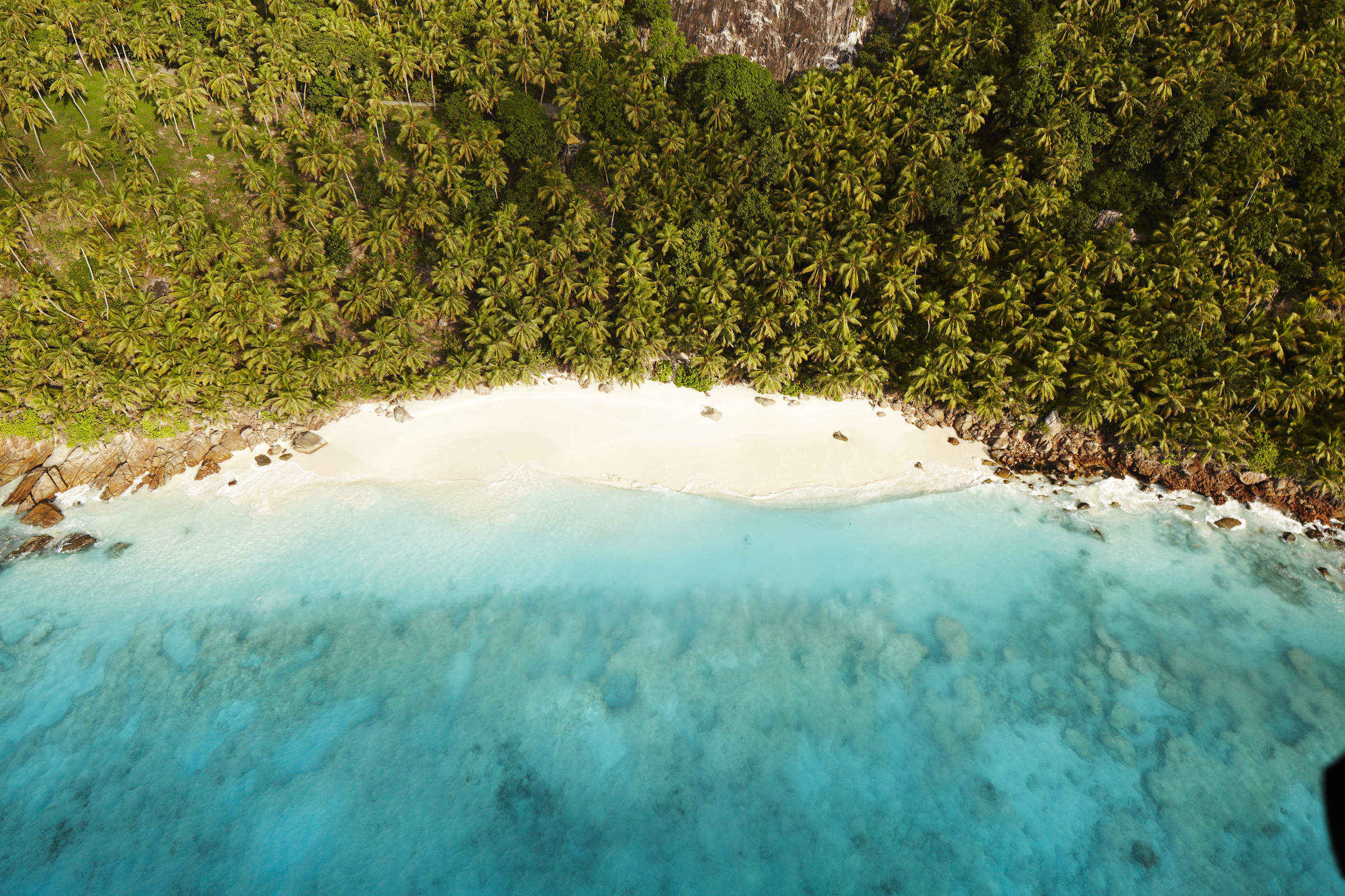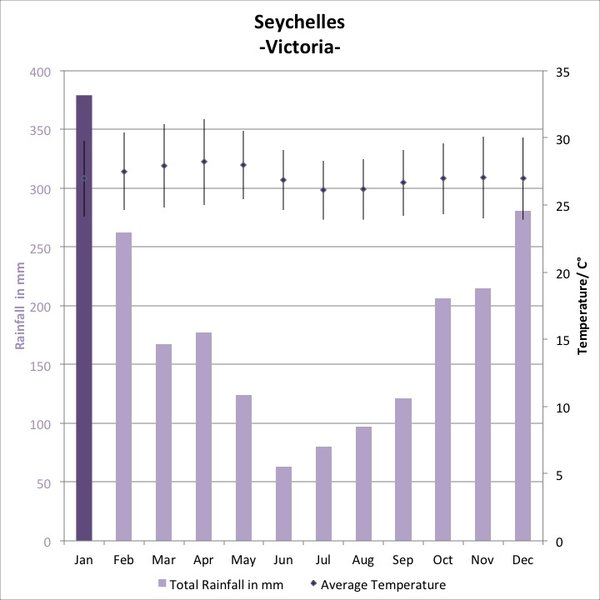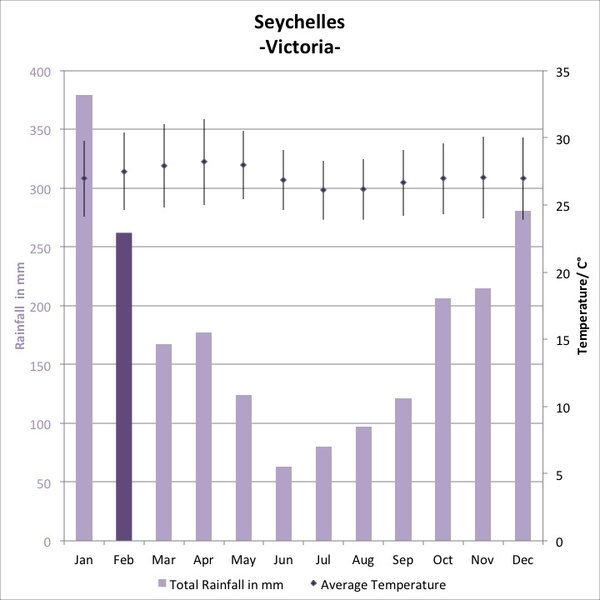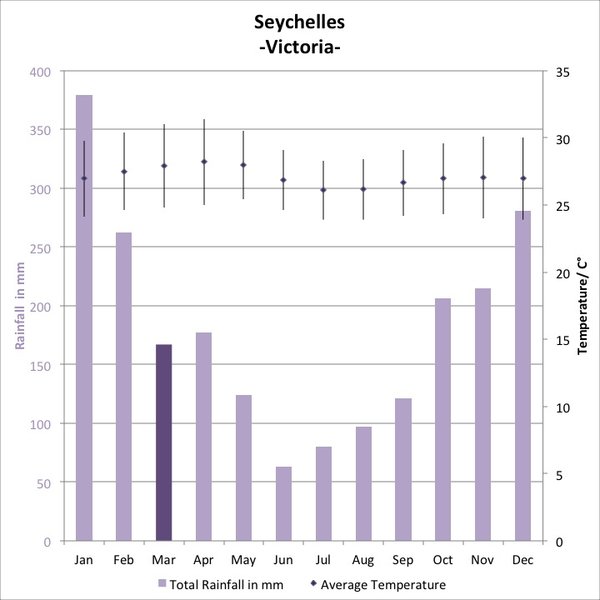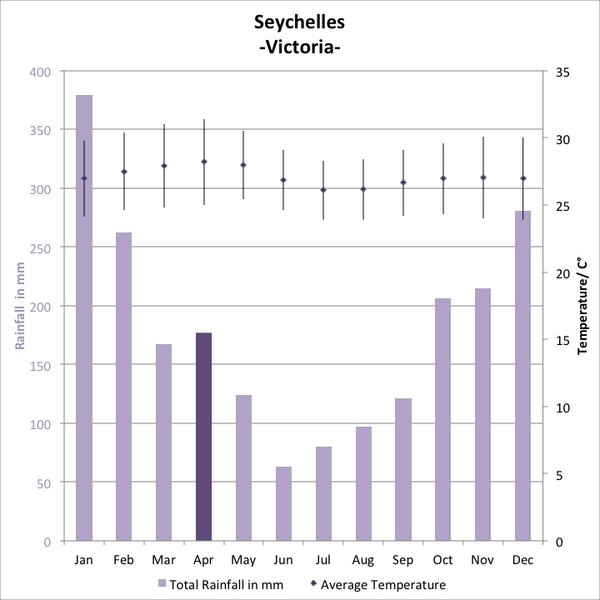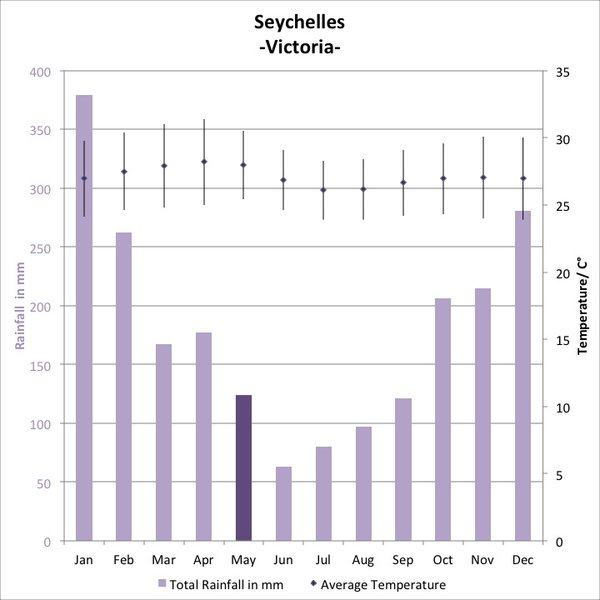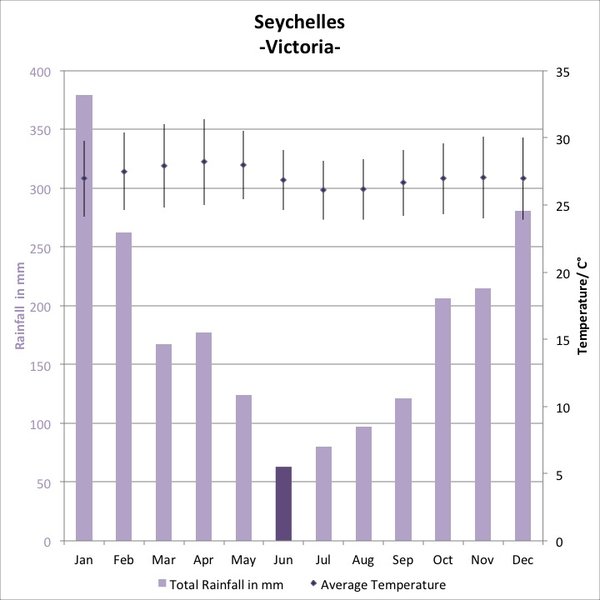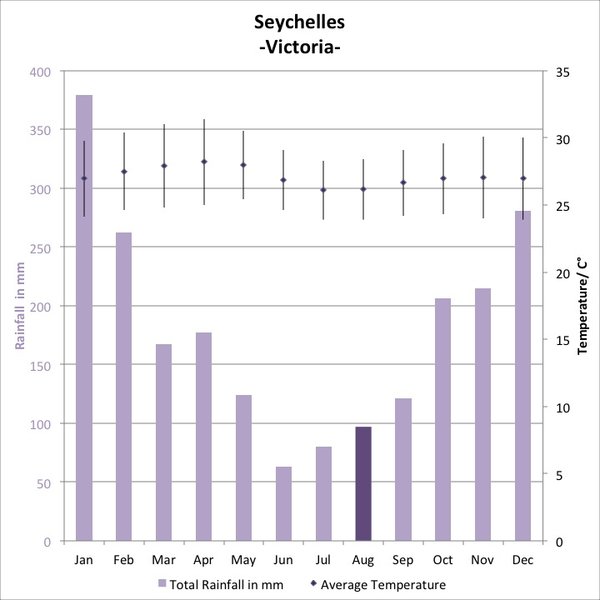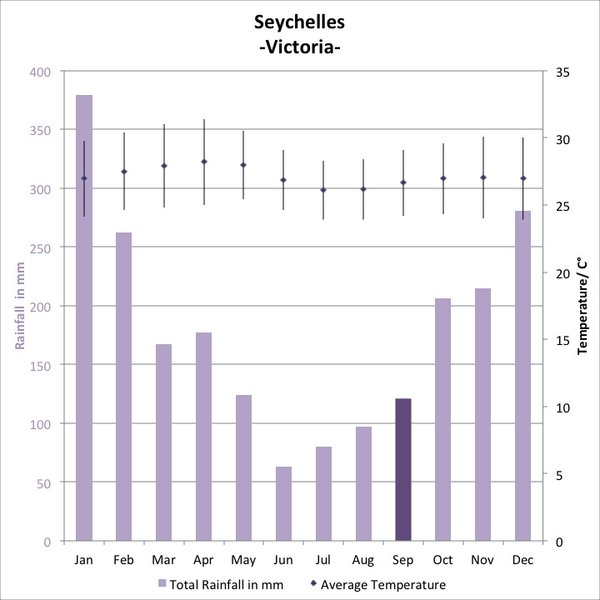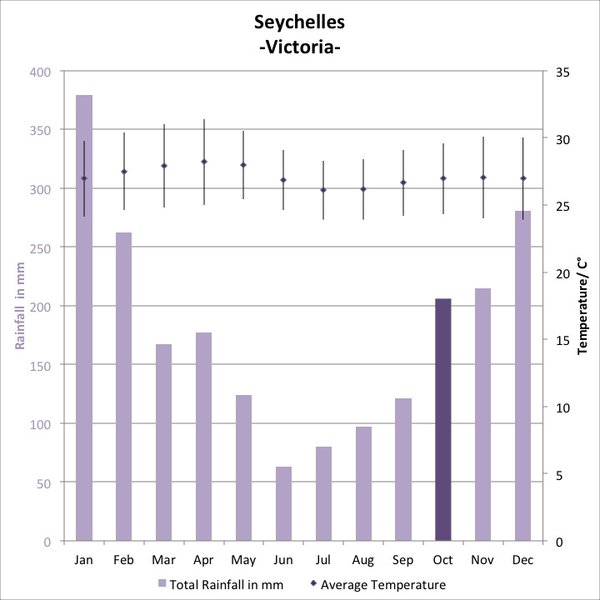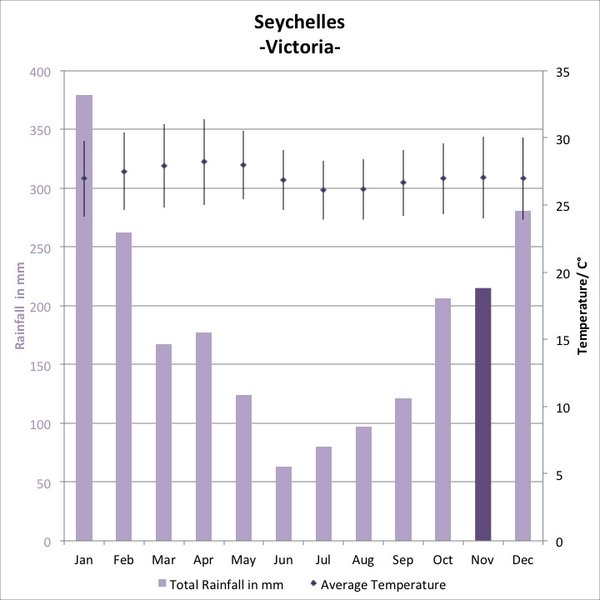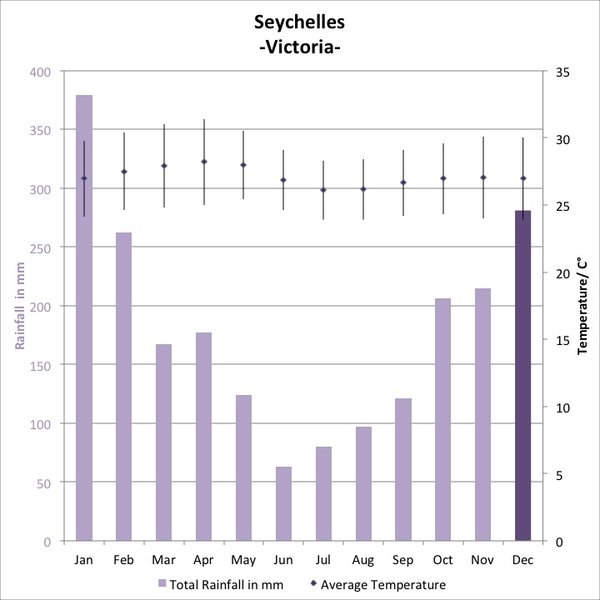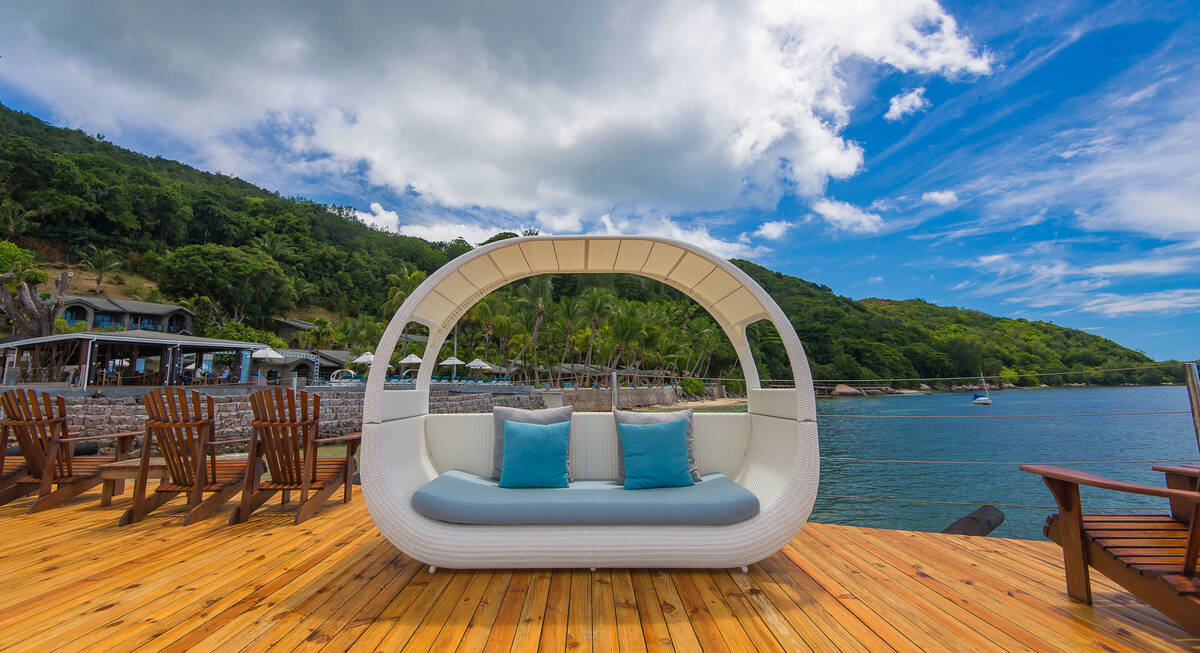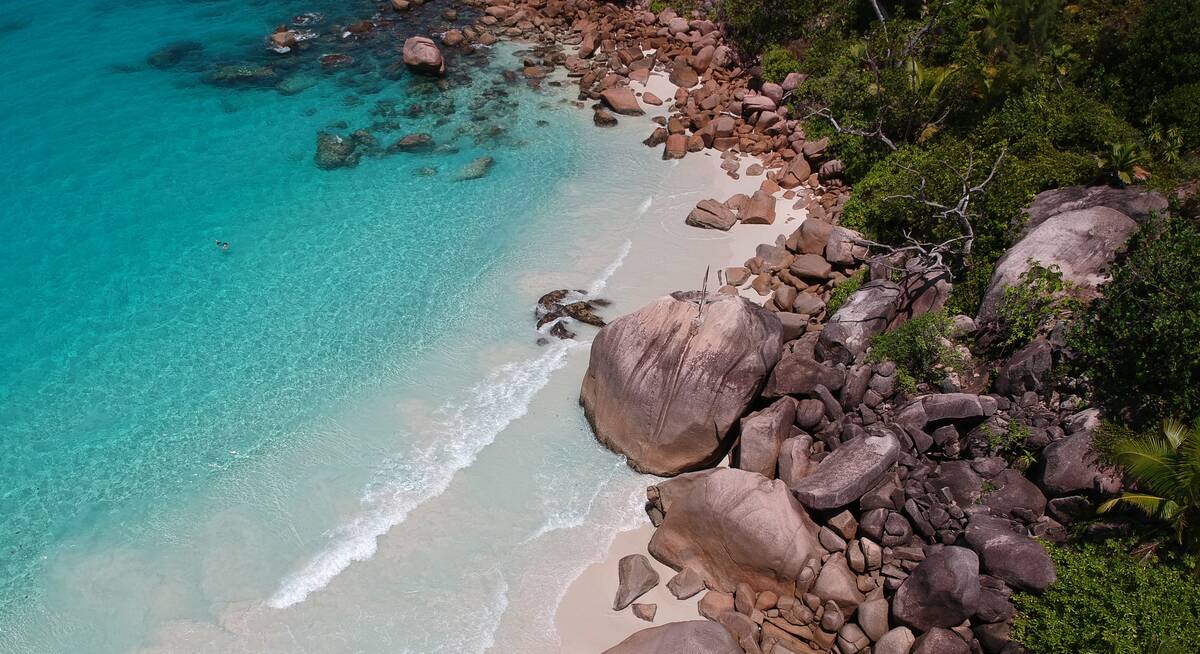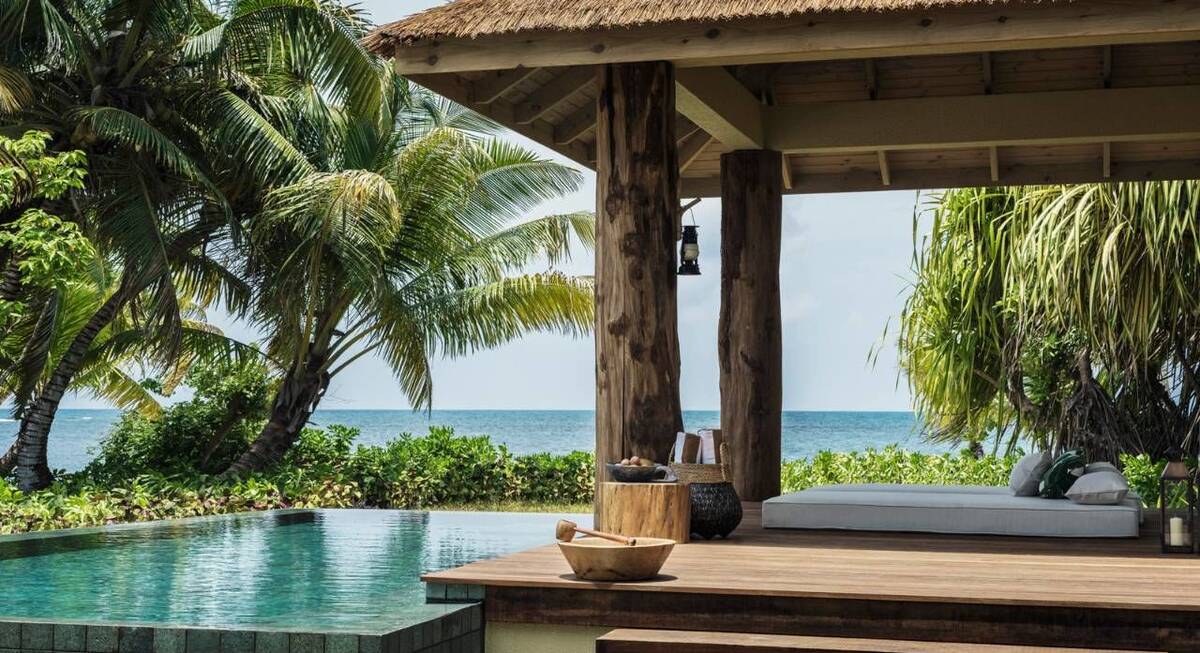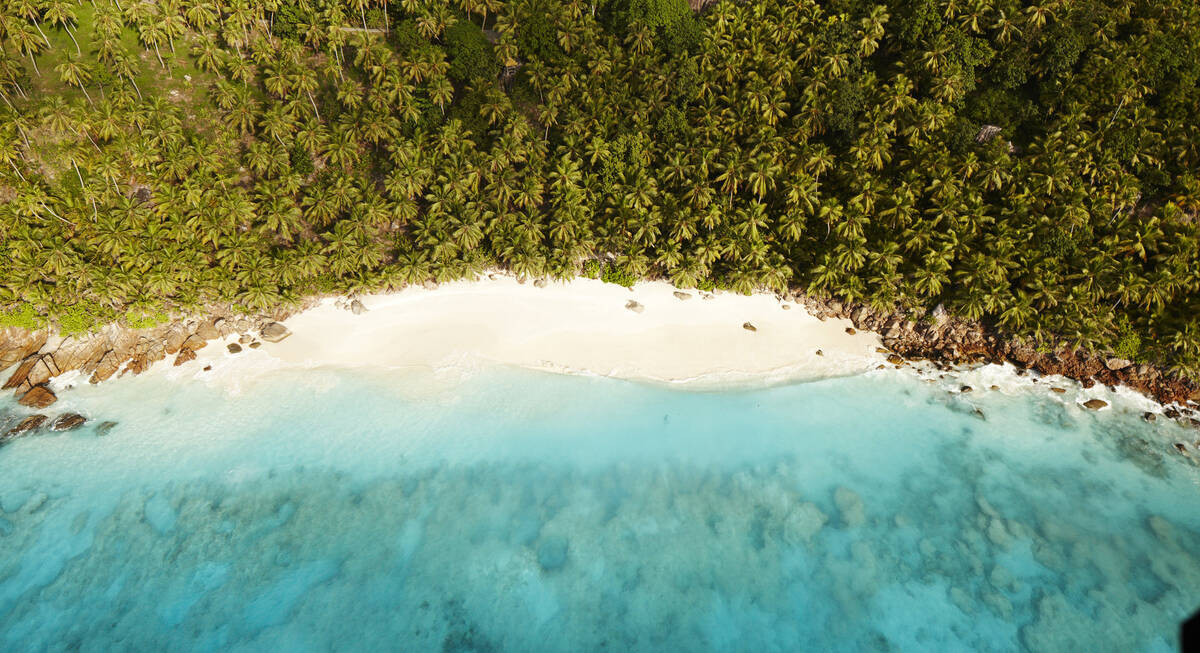January: the wettest month of the year with high humidity level.
February: very rainy month; afternoon downpours are to be expected.
March: temperature rises a little while the rain gets less.
April: calmest, warmest month as the wind dies down and changes direction.
May: start of a relatively dry period.
June: little rain with hot and clear days.
July: lovely warm days and normally very little rain.
August: dry and lovely, similar to June and July.
September: warm and clear month, with rain possible at the end of the month.
October: rain increases towards the end.
November: start of the main rainy season.
December: wet month with lush and green vegetation.
Our top picks for holidays to Seychelles
We'll always tailor-make your holiday for you. Here are some of our favourites to inspire you.

Looking for inspiration on where to travel next?
Visit our trip chooser to explore your options and find inspiration for your perfect African adventure
Inspire me